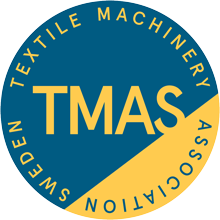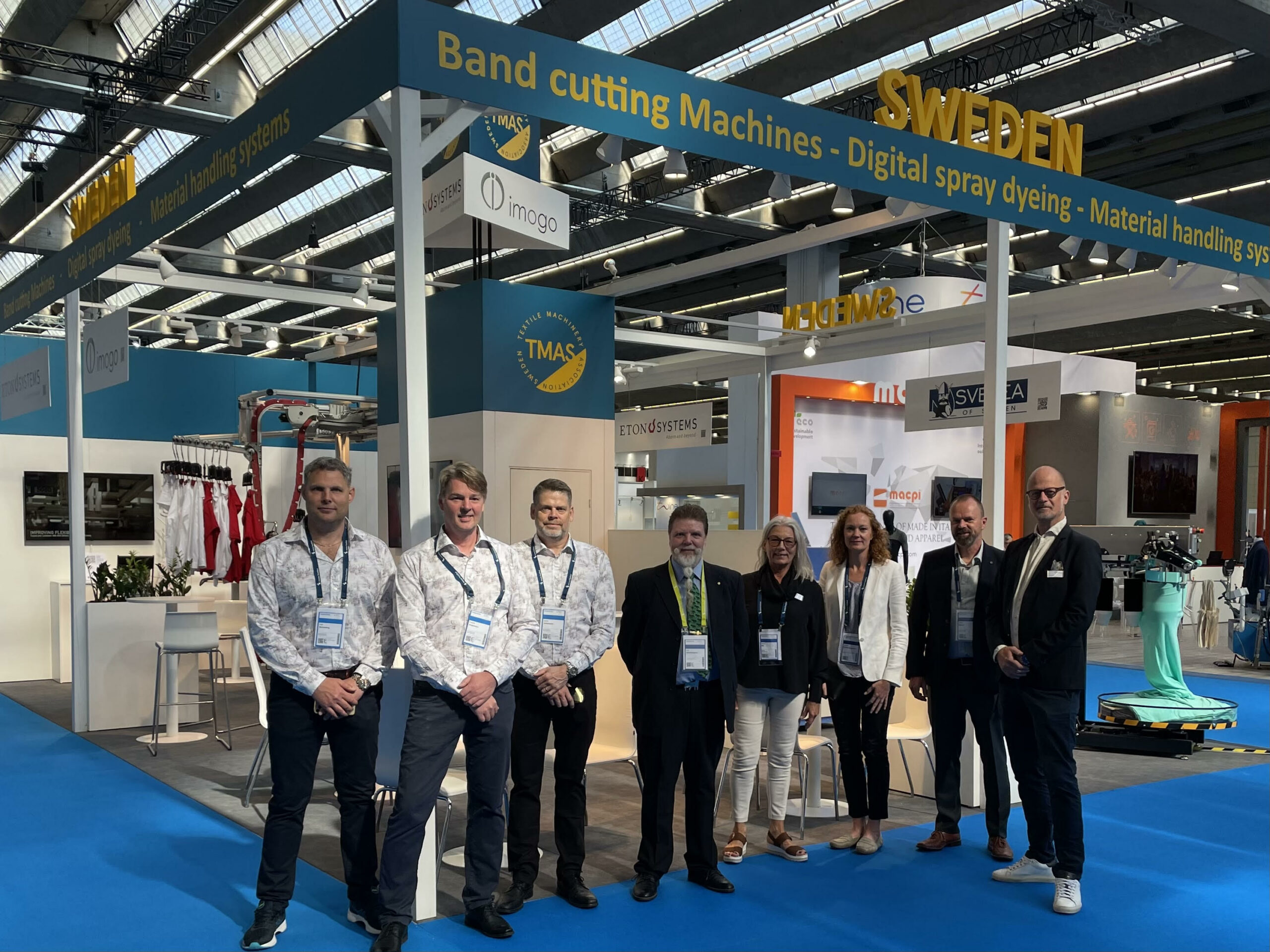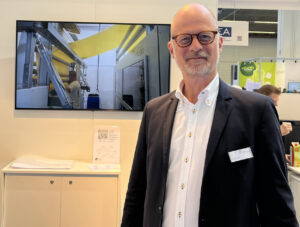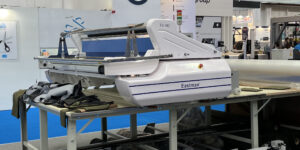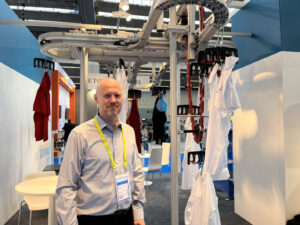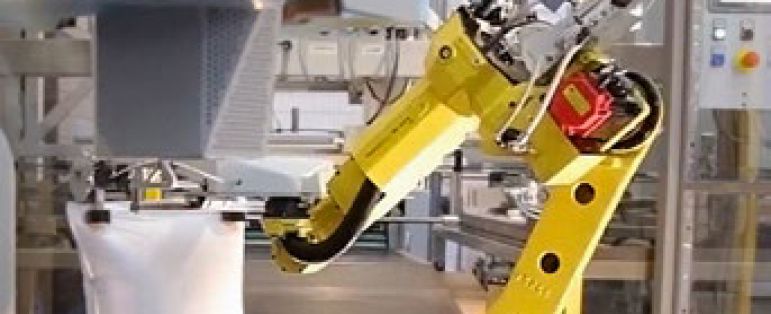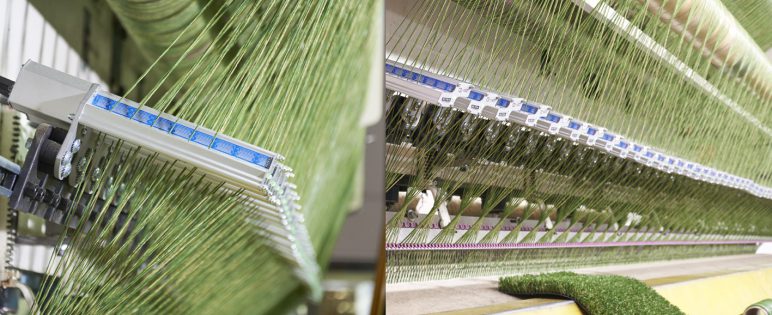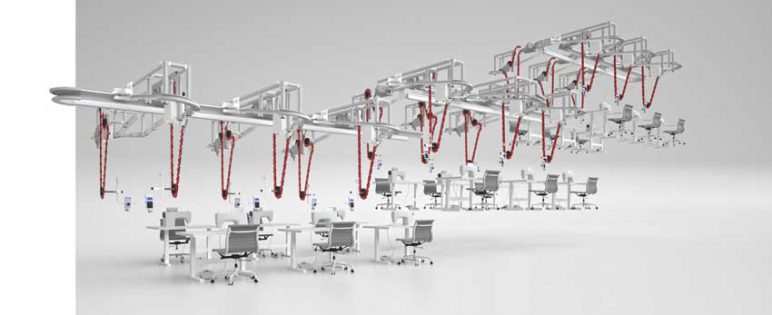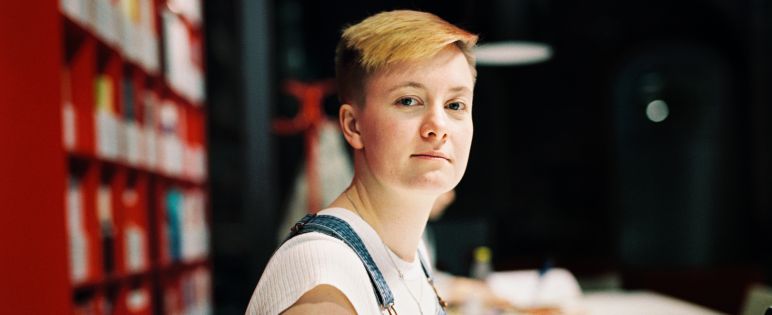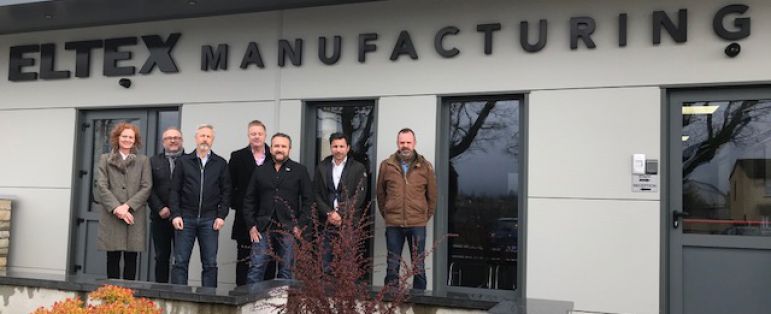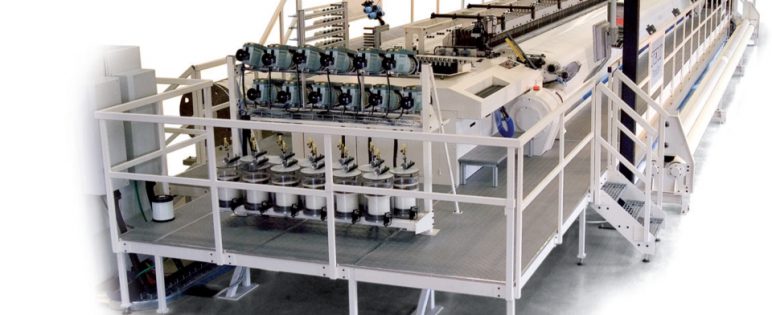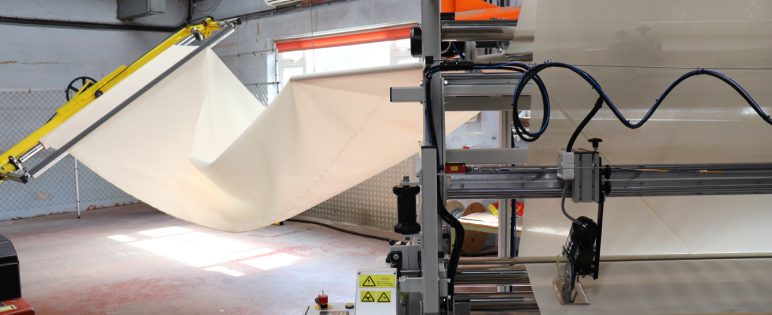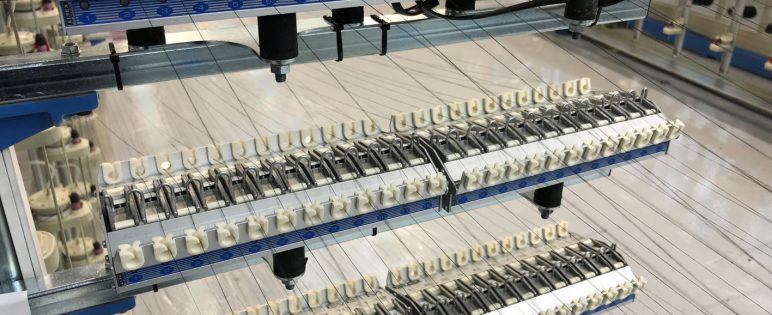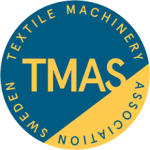Solid success for TMAS in Frankfurt
The three major textile industry events held from June 21-24 in Frankfurt, Germany – Techtextil, Texprocess and the one-time-only Heimtextil Summer Special – proved highly successful for members of TMAS, the Swedish textile machinery association.
“There was an energy and also pure pleasure to be returning to face-to-face business in Frankfurt,” said TMAS secretary general Therese Premler-Andersson. “All our members reported great order activity and high satisfaction with the organisation. The hangover from the Covid-19 pandemic put certain obstacles in place, but in the end, a determination for success by everyone involved – the 63,000 visitors from 117 countries, the 2,300 exhibitors and organiser Messe Frankfurt – ensured these were overcome. TMAS members with sustainable new technologies for dyeing and finishing processes made notable progress during the week.”
Spinnova
Imogo, for example, the developer of sustainable textile dyeing technology that drastically minimises water, energy and chemical use, announced a partnership with Finland’s Spinnova, with the first products resulting from it to be launched later this year.
“Spinnova is a climate positive textile fibre and its first commercial scale factory will save more CO2 emissions than it emits,” said Premler-Andersson. “Spinnova fibre production uses zero harmful chemicals and 99% less water than conventional cotton production. Imogo’s patented technology is also highly resource efficient, decreasing energy, chemical and water use by over 90% and dye use by almost a third.”
“We are very excited about this partnership and the impact the combination of our technologies can have on the textile value chain,” added Per Stenflo, CCO and founding partner of imogo. “Together we will illustrate that dramatically reduced environmental impact from the fashion industry is possible. Replacing obsolete technologies and materials with new alternatives will be a cornerstone of building a new responsible textile industry that can be part of overcoming the crisis of global warming and its consequences.”
In addition to being significantly more sustainable than conventional methods, Spinnova and imogo’s products do not compromise on performance. The colour and resistance to fading or bleeding of items dyed with imogo’s technology is on the same level to those dyed conventionally. Spinnova fibre is also a durable and versatile material with a natural feel, and has already been applied to products from high fashion to outdoor and everyday wear, as well as furniture and home decor.”
Spinnova’s first commercial-scale factory is expected to be completed in Finland at the end of this year. Together with its investor and joint venture partner Suzano, it aims to scale its global production to one million tons of sustainable fibre annually within the next 10-12 years – providing global fashion brands and retailers with a versatile and sustainable fibre at scale.
Archroma
Baldwin Technology meanwhile announced a new collaboration with leading textile chemicals company Archroma to optimise performance and resource savings in finishing.
“Our objective is to support customers as they transition to more eco-friendly, safe and sustainable finishing solutions. Archroma provides innovative specialty chemistry and Baldwin’s TexCoat G4 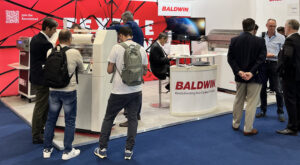 applies it onto the fabric in the most efficient and responsible way,” said Rick Stanford, Baldwin Technology’s vice president of global business development for textiles
applies it onto the fabric in the most efficient and responsible way,” said Rick Stanford, Baldwin Technology’s vice president of global business development for textiles
Baldwin’s TexCoat G4, a non-contact spray technology for textile finishing and remoistening, is designed to allow a controlled and optimal coverage of the exact amount of finish chemistry for reaching specific characteristics of the fabric. It can be used to reduce water consumption by as much as 50% compared to traditional padding application processes.
With Archroma, it is currently testing finishing products and systems, such as the soon-to-be-launched PFC-free Smartrepel Hydro SR for water-based soil repellence, as well as metal and inorganic particle-free antimicrobial technologies like Sanitized T 20-19 and TH 15-14.
“Archroma is one of the most recognised global suppliers of speciality chemistry for textiles and we are honoured to partner to bring optimised and sustainable solutions to an industry that is serious about protecting consumers and reducing its environmental impact,” said Stanford, Baldwin Technology’s vice president of global business development for textiles.
Multiple orders
A third TMAS member, Coloreel had already secured multiple orders for its instant thread colouration technology this year, even prior to the three shows in Frankfurt.
“We’re expecting a lot from the fruitful discussions we held,” said VP of Sales Sven Öquist. “Our technology enables the high-quality and instant colouring of a textile thread while it is actually being used in production and can be paired with any existing embroidery machine without modification, while also making it possible to produce gradients in an embroidery for the first time,”
“Advanced rapid colour formulation software and high-speed drive technology allow a single needle to carry out what it previously required many multiples of them to do – and with much more consistent stitch quality. By instantly colouring a recycled white base thread during production, our system enables complete freedom to create unique embroideries without any limitations. Colour changes along the thread can either be made rapidly from one solid colour to another, or gradually, to make smooth transitions or any colouring effect desired. This provides big benefits when it comes to sustainability and design creativity.”
More…
In other positive TMAS news from Frankfurt:
- Svegea reported high interest in its latest EC 300 collarette cutting which is used by garment manufacturers around the world for the production of tubular apparel components such as waistbands, cuff and neck tapes and other seam reinforcements. With its E-Drive 2 system and fully automatic FA500 roll slitter, the EC 300 has an output of around 20,000 metres per hour.
- Vandewiele Sweden (former IRO AB), a member of the Vandewiele group,received many enquiries about its latest ZTF Zero Twist Feeder, particularly from companies involved in the growing market of textile reinforcements for composites. In the weaving of fibres such as carbon, glass and aramids, as well as thermoplastic tapes for highly-engineered composite fabrics, it is essential that there is no twist in the feed, which this new machine absolutely guarantees.
- “The ZTF Zero Twist Feeder keeps the tape yarns or fibre tows constantly stretched to avoid the risks of any snarls or twisting,” explained sales and marketing manager Pär Hedman. “We spoke to many companies interested in this new machine, which will be supplied in bespoke versions specific to the individual needs of each customer and the intended end-use.”
-
ACG Nyström demonstrated the benefits of the automated Talon 75 multi-ply cutter following a new agreement with Eastman Machine Company, of Buffalo, New York. It builds on a partnership dating back over a century – combined, the two companies have installed over 3,000 automated cutting systems worldwide and distributed hundreds of thousands of manual cutting machines.
- Eton Systems, the inventor and world’s leading provider of automated production systems for apparel and other textile-based processes, introduced its newly-launched Opta system. “The most important factor for high efficiency in garment production is to keep the needle moving,” said managing director Jerker Krabbe. “If the needle stops, we are not creating value. With Opta, all components are sequenced automatically to each work station presented directly to the operator. We had a great time in Frankfurt.”
